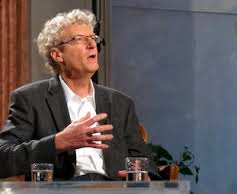What is the stored-program concept and what are its origins?

Professor Jack Copeland
Lecture by Jack Copeland, Professor of Philosophy at the University of Canterbury, Christchurch, New Zealand.
Abstract
This lecture describes the early history of a fundamental ingredient of modern computing, the stored-program concept.
An analysis of the contributions by Alan Turing, Konrad Zuse, F. C. Williams, Tom Kilburn, Presper Eckert, John Mauchly, Richard Clippinger and John von Neumann shows that the stored-program concept consisted of several distinct layers or ‘onion-skins’.
These different onion-skins emerged slowly over a ten-year period, giving rise to a number of different programming paradigms.
The ‘onion-skin analysis’ permits the resolution of various scholarly disagreements about the stored-program concept and its history.
We also welcome Professor. Dr. Ing. habil, Horst Zuse who will attend the lecture. Horst Suze is the son of the German computer pioneer, Konrad Suze (1910 – 1995), who invented the world’s first programmable computer in Berlin in 1941.
After the Jack Copeland lecture at IVA, Prof. Suze gives a lecture about Konrad Zuse’s efforts in developing the computer and the design of the programming language Pantakül. The lecture will be given from 16:00 to 18:00 at Kalvebod Brygge 31 (Ingeniørforeningen). It is organized by The Data Historic Society.
